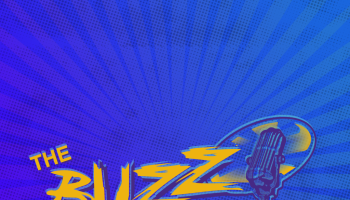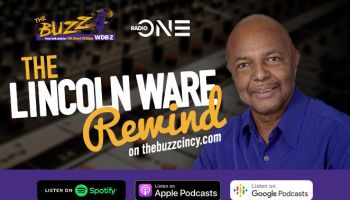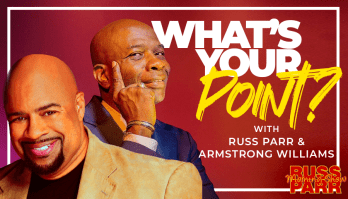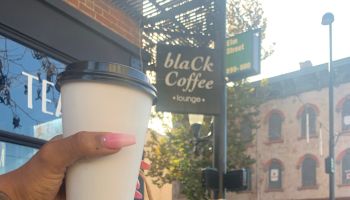Via: Chicagonow.com
(Rev. Al Sharpton)
I sat at my desk, as frozen as a block of ice, listening to one of the most heated conversations I’ve ever heard on the radio. Tavis Smiley and Rev. Al Sharpton were mad, and you could hear it in their voices. This wasn’t “radio mad,” where you pretend to fight in order to get ratings. It was “I’m coming to your mama’s house to get you” mad, the kind of anger that normally doesn’t spill over to the American public.
The contentious dialogue was rooted in Smiley’s recent attack on Rev. Sharpton for a New York Times article in which Sharpton was quoted as saying that he feels the president is wise not to “ballyhoo” a black agenda.
Tavis Smiley
In a platform granted to him by The Tom Joyner Morning Show, Tavis put Rev. Sharpton, NAACP President Ben Jealous, Urban League President Marc Morial, Harvard Professor Charles Ogletree and even Dorothy Height on “super blast,” arguing that these individuals have not shown sufficient evidence that they care about the interests of the African-American community.
Bad move Tavis. Very bad.
(Dr. Boyce Watkins) www.thegrio.com/opinion/sharpton-smiley-reveals-rift-in-black-leadership-split-over-obama.php
On March 20, public radio and TV host Tavis Smiley hosted a symposium in Chicago titled, “We Count! The Black Agenda is the American Agenda.”
Tavis Smiley and twelve African American thought leaders, opinion makers, scholars, analysts and elected officials convened at Chicago State University.
The event discussed “Is there a need for a Black Agenda?” and featured a list of distinguished African Americans including: Princeton professor Cornel West, Nation of Islam’s Minister Louis Farrakhan, Founder and CEO of PolicyLink Angela Glover Blackwell, Reverend Jesse L. Jackson Sr., Georgetown professor and author Michael Eric Dyson, college president and noted economist Julianne Malveaux, former alderman Dorothy Tillman, advertising pioneer, Tom Burrell, NAACP President Ben Jealous.
In April, civil rights leader, Rev. Al Sharpton, will headline, “Measuring the Movement,” a conference designed to explore ways grassroots organizations can work with government agencies to improve the quality of life for blacks.
Both events were arranged after a volatile dust-up between Sharpton and Smiley. Smiley accused Sharpton and other black leaders of giving Obama a collective pass on pushing an agenda that addresses the disproportionate disadvantages black people face. Sharpton is against such a strategy, believing it’s counterproductive and puts Obama in a vulnerable position. It’s up to black leaders, not Obama, to push a “black agenda,” Sharpton said.
Both arguments send distressing signals about black leadership in the Obama era. As Dr. Martin Luther King, Jr., analogized some four decades ago, after entering the starting line of the race for equality some 300 years after whites, blacks still have to “perform some impossible feat in order to catch up with his fellow runner.” With disproportionate high school drop-out, murder, incarceration, poverty and unemployment rates, blacks still face a seemingly impossible feat.
So, yes, there is a need for a specific black agenda that addresses historical disparities and future opportunities. However, forcing Obama to define or promote such an agenda is not a feasible maneuver in a country where most still avoid, deny or even discuss the “race problem.”
From the dawn of slavery until now, black agendas were dictated by racial restraints, oppression and disparities. For the most part, black leaders didn’t draft agendas; they assessed situations and eloquently articulated the need for freedom, equality, opportunity or the abolition of racial segregation and oppression. In short, they motivated masses around obvious agendas.
Today, with a black president, with other African Americans in powerful positions and blacks collectively earning more than $700 billion annually, societal restraints seem less obvious, less racist. In an environment where “post-racial” perception trumps the reality of inequality, relevant black leaders must fall back on historical roles. If they somehow rose above posturing, pontificating and debating the need for a black agenda, they may recognize an emerging, empowering agenda in the making, albeit an agenda by another name.
Recently, the Housing and Urban Development (HUD) agency in collaboration with the Department of Transportation and the Environmental Protection Agency hosted an Internet forum to make sure people of color in low-income areas were aware of its new Sustainable Communities Planning Grant Program. Officials say their top priority is to partner federal programs with localities to create stronger, more sustainable and equitable communities through local innovation, the blossoming clean energy economy, new housing developments and job opportunities.
A series of Obama Administration agencies, collaborating with social and public policy research foundations such as the Center for American Progress and PolicyLink are working to launch programs with the potential to empower disenfranchised populations. More than a trillion dollars of Obama’s 2011 budget proposal is dedicated to creating and accessing new, well-paying jobs, affordable homes, modern transportation, healthy food choices and quality schools in depressed urban areas. Without using the words “black agenda,” Obama has challenged the White House Offices of Urban Affairs, Faith-Based and Neighborhood Partnerships, the Department of Justice and other federal agencies to bypass traditional methods in order to enact urban reform.
These are the areas where the legislating, motivating and organizing skills of black political, religious and secular leaders are seriously needed. In a society where white privilege is still institutionalized, government officials will likely turn to reputable nonprofit institutions to orchestrate an urban agenda. Good intentions aside, there’s no history, formula or structure that guarantees these established agencies will respect or engage grassroots or street-savvy organizations and individuals in any empowering urban reform effort.
Although it’s two years late, it’s not too late to articulate a “do-for-self” agenda. There’s still time to use black media, churches and secular organizations to connect revolutionary government initiatives with a new spirit of self-reliance and community responsibility. A window of opportunity exists to mobilize and instruct urban citizens on ways they can play roles in stemming the drop-out rate, clog the prison pipeline, create and support vibrant community enterprises and rebuild long-ignored, self-sustaining communities. Black leaders have the opportunity to help draft a vision that can withstand the pitfalls of another “Great Society” experiment and live beyond the Obama years.
Instead of arguing about Obama delivering a “black agenda,” black leaders should have at the ready a fiscally and socially sound, urban agenda that can compliment and expand current government initiatives. Instead of hosting forums, perhaps they should be promoting a vision – one with a consistent, inspirational message and down-to-earth, step-by-step methods developed and promoted to finally activate a do-able, sustainable urban revitalization movement.
(the bellereport.net) (Chicagonow.com)














